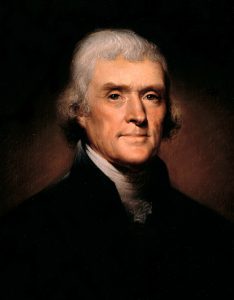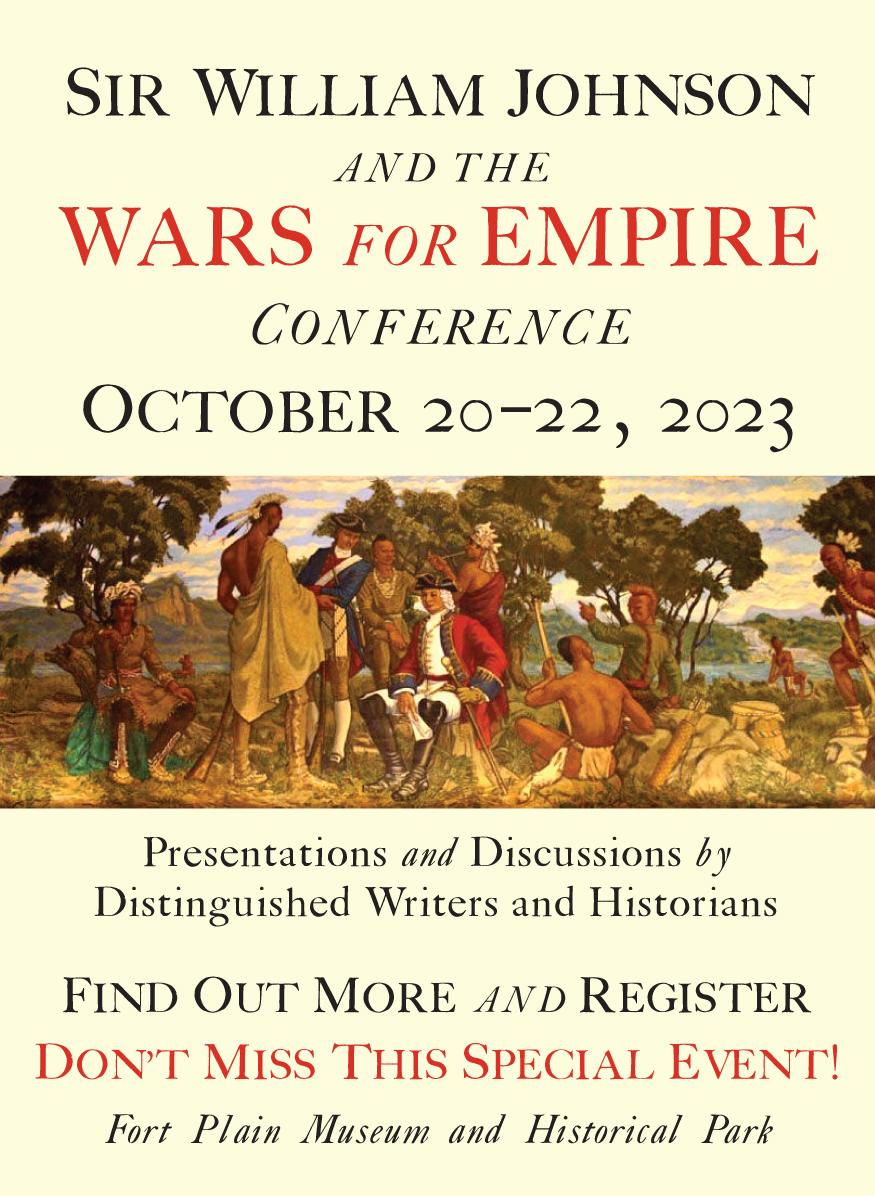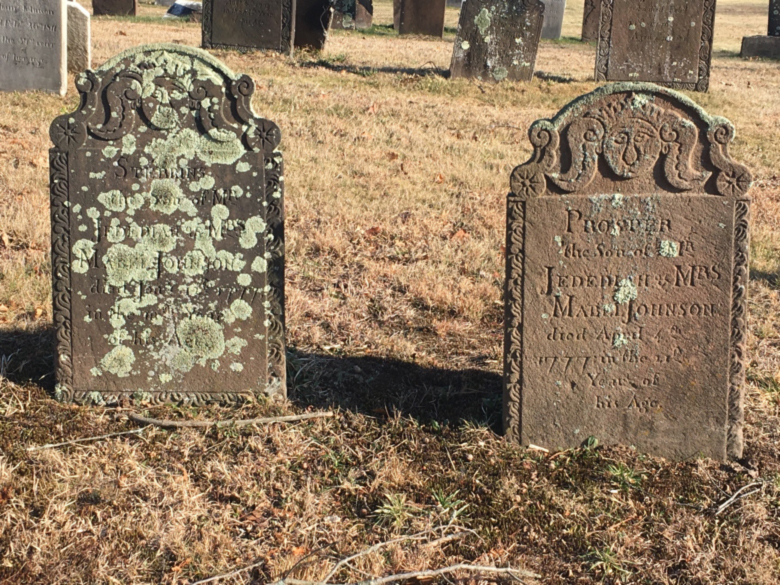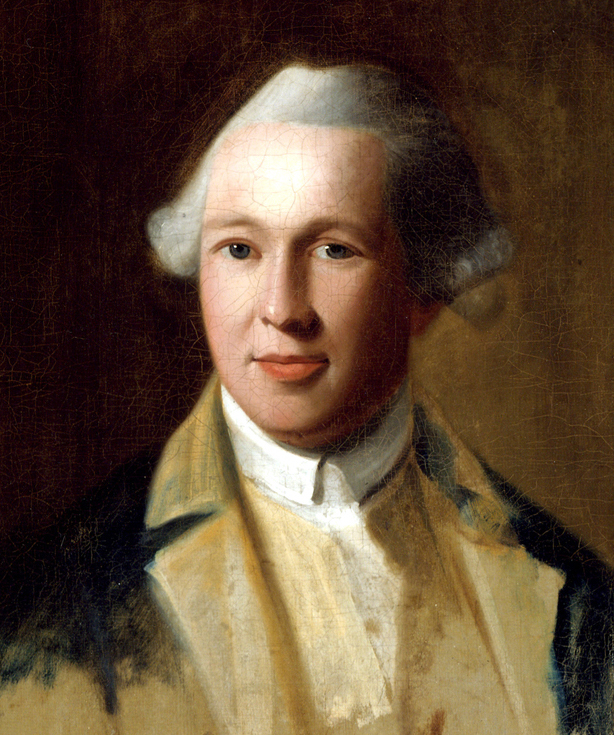In 1790, when Edmund Burke published his Reflections on the Revolution in France, it triggered lots of backlash from people like Thomas Paine, Richard Price, Joseph Priestley, and Thomas Jefferson. Jefferson wrote a letter to Benjamin Vaughan in May 1791 severely criticizing Burke.[1] This letter has given many scholars an impression that after this point, Jefferson and Burke departed ideologically and stayed away from each other’s political thought eternally and irrevocably; this has been called “the opposition of Jefferson and Burke,”[2] Conor Cruise O’Brien called Burke and Jefferson “Mutually Antipathetic Minds,”[3]while Joyce Appleby depicted the situation this way:
not unexpectedly, Jefferson and Adams gleaned different lessons from the French Revolution. Like the great English conservative Edmund Burke, Adams flinched at the cavalier destruction of established institutions in France . . . Jefferson found himself more in tune with Burke’s adversary Thomas Paine. The two clashed.[4]
Technically speaking, these accounts are all accurate, but treating this opposition as the ultimate ending point of Jefferson’s assessment of Burke’s teachings is historically problematic. Later on, Jefferson apparently shifted from a zealous supporter of the French Revolution to the new position of a more or less Burkean theorist. One example is that both Late Burke (meaning in the 1790s) and Late Jefferson (1809-1826) tended to emphasize citizen’s duties and obligations.
By all means, “duty” is a big theme that Burke spent plenty of time on after the outbreak of the French Revolution. In his Reflections, he had already said, “I was aware that a jealous, ever-waking vigilance to guard the treasure of our liberty, not only from invasion, but from decay and corruption, was our best wisdom and our first duty.” In the same work, he also said, “In England we have not yet been completely embowelled of our natural entrails; we still feel within us, and we cherish and cultivate, those inbred sentiments which are the faithful guardians, the active monitors of our duty, the true supporters of all liberal and manly morals” and “We fear God; we look up with awe to kings, with affection to parliaments, with duty to magistrates, with reverence to priests, and with respect to nobility.”[5] When it comes to his 1791 writing, An Appeal from the New to the Old Whigs, “duty” started to occupy an even more important and salient place. In that writing, we see lines like these:
If we owe to it [civil society] any duty, it is not subject to our will. Duties are not voluntary. Duty and will are even contradictory terms. Now though civil society might be at first a voluntary act (which in many cases it undoubtedly was) its continuance is under a permanent standing covenant, coexisting with the society; and it attaches upon every individual of that society, without any formal act of his own. This is warranted by the general practice, arising out of the general sense of mankind. Men without their choice derive benefits from that association; without their choice they are subjected to duties in consequence of these benefits; and without their choice they enter into a virtual obligation as binding as any that is actual. Look through the whole of life and the whole system of duties. Much the strongest moral obligations are such as were never the results of our option. I allow, that if no supreme ruler exists, wise to form, and potent to enforce, the moral law, there is no sanction to any contract, virtual or even actual, against the will of prevalent power. On that hypothesis, let any set of men be strong enough to set their duties at defiance, and they cease to be duties any longer.[6]
In the same 1791 writing, Burke also explicitly said: “neither the few nor the many have a right to act merely by their will, in any matter connected with duty, trust, engagement, or obligation” and “I am well aware, that men love to hear of their power, but have an extreme disrelish to be told of their duty.” Moreover, as early as 1783, Jefferson already said in his Speech on Fox’s India Bill: “the situation of man is the preceptor of his duty.”[7] All these, without any doubts, are typically Burkean arguments.
Some have written that Jefferson emphasized rights much more than duties. For example, Harry Jaffa thought that “Jefferson was always more concerned to remind the people of their rights than of their duties. He emphasized what they should demand of their government rather than what they must demand of themselves.”[8]A. J. Beitzinger also claimed that Jefferson “put prime emphasis on rights rather than duties.”[9]However, this type of straightforward summarization seems to be quite flawed when it comes to Jefferson’s thinking in his later years.
In January 1802, Jefferson famously wrote to the Danbury Baptist Association: “I shall see with sincere satisfaction the progress of those sentiments which tend to restore to man all his natural rights, convinced he has no natural right in opposition to his social duties.”[10] In April 1802, Jefferson repeated this point in his letter sent to Volney:
I shall protect them in the right of lying and calumniating, and shall go on to merit the continuance of it, by pursuing steadily my object of proving that a people, easy in their circumstances as ours are, are capable of conducting themselves under a government founded not in the fears & follies of man, but on his reason, on the predominance of his social over his dissocial passions, so free as to restrain him in no moral right, and so firm as to protect him from every moral wrong, which shall leave him in short in possession of all his natural rights; nothing being more demonstrable than that he has no natural right in opposition to his social duties. this is the object now nearest to my heart.[11]

Again in his 1805 second inaugural address, Jefferson explicitly said: “We are firmly convinced, and we act on that conviction, that with nations, as with individuals, our interests soundly calculated, will ever be found inseparable from our moral duties; and history bears witness to the fact, that a just nation is taken on its word, when recourse is had to armaments and wars to bridle others.”[12] In this sense, Ari Helo’s summary is quite accurate—he points out that Jefferson believed “our duties and true interests are reconcilable.”[13] Paul Kuntz is also right in arguing that “in Jefferson’s system of rights and duties, the function of rights is to enable persons to do their duties.”[14] The key point is that in this period (1800-1809) Jefferson occasionally talked about “duties,” but his “duties” were almost always placed closely with “rights” and “interests.” But, in the later Jefferson writings, we start to see more often that he mentioned “duties” alone, just like Burke. Hence, “duties” became more clearly a thing (even a priority) every citizen should, and must fulfill.
In Jefferson’s April 1809 letter to the New York State Legislature, he wrote: “our duty to ourselves to posterity & to mankind call on us by every motive which is sacred or honorable, to watch over the safety of our beloved country, during the troubles which agitate & convulse the residue of the world, & to sacrifice to that all personal & local considerations.”[15] In September 1810, Jefferson wrote to John B. Colvin: “a strict observance of the written laws is doubtless one of the high duties of a good citizen.”[16] In March 1812, Jefferson wrote to Charles Christian: “private charities, as well as contributions to public purposes in proportion to every one’s circumstances, are certainly among the duties we owe to society, & I have never felt a wish to withdraw from my portion of them.”[17] In Jefferson’s September 1814 letter to John Eppes, he explicitly wrote: “No government can be maintained without the principle of fear as well as of duty. Good men will obey the last, but bad ones the former only.”[18] In his June 1816 letter to Francis W. Gilmer, Jefferson wrote: “every man is under the natural duty of contributing to the necessities of the society; and this is all the laws should enforce on him; and, no man having a natural right to be the judge between himself and another, it is his natural duty to submit to the umpirage of an impartial third.”[19] In Jefferson’s June 1818 Draft of the Rockfish Gap Report of the University of Virginia Commissioners, he wrote that one of the main goals for higher education is to train each student “to understand his duties to his neighbors and country, and to discharge with competence the functions confided to him by either.”[20] In June 1819, Jefferson famously wrote to Ezra Stiles Ely: “in that branch of religion which regards the moralities of life, and the duties of a social being, which teaches us to love our neighbors as ourselves, and to do good to all men, I am sure that you & I do not differ.”[21] In Jefferson’s September 1819 letter to Spencer Roane, he wrote: “independance can be trusted nowhere but with the people in mass. they are inherently independant of all but moral law.”[22] The “moral law” part is obviously quite crucial. In November 1821, as the rector of the University of Virginia, Jefferson sent these words to the Literary Fund Board: “we fondly hope that the instruction which may flow from this institution, kindly cherished, by advancing the minds of our youth with the growing science of the times, and elevating the views of our citizens generally to the practice of the social duties, and the functions of self-government, may ensure to our country the reputation, the safety and prosperity, and all the other blessings which experience proves to result from the cultivation and improvement of the general mind.”[23] In Jefferson’s June 1826 letter to Joseph Coolidge, he emphasized the importance for youths to “learn and practice the duties of obedience to the laws of their country.”[24]
Gary Hart interpreted Jefferson correctly: “civic duty was, for Jefferson, the guarantor of rights.”[25] This summarization is particularly true for Jefferson’s later life. The idea is that, you should first fulfill your duties, and then you can go ahead to enjoy all your rights.
Interestingly enough, in as early as December 1796, Jefferson wrote this line in a letter sent to Edward Rutledge: “There is a debt of service due from every man to his country, proportioned to the bounties which nature and fortune have measured to him.”[26] This coincided with my other research,[27] which shows that as early as 1794-1795 Jefferson already started to show his dislike of French radical Jacobinism, and was more or less disappointed by the developments of the French Revolution.
To better understand Jefferson’s shift of emphasis, we can compare his September 1789 letter to James Madison with his February 1815 letter to John Vaughan. In the former one, Jefferson famously mentioned:
‘that the earth belongs in usufruct to the living’: that the dead have neither powers nor rights over it. The portion occupied by any individual ceases to be his when himself ceases to be, & reverts to the society.[28]
In the latter one, Jefferson said:
nothing is more incumbent on the old than to know when they should get out of the way, and relinquish to younger successors the honors they can no longer earn, and the duties they can no longer perform.[29]
It is very clear that in his later life Jefferson place more emphasis on the theoretical importance of that additionally-added layer of “duty.”
[1]The Papers of Thomas Jefferson, vol. 20, 1 April–4 August 1791, ed. Julian P. Boyd (Princeton: Princeton University Press, 1982), 391–392.
[2]Merrill D. Peterson, The Jefferson Image in the American Mind (Charlottesville, VA: University of Virginia Press, 1998), 44-45.
[3]See berlin.wolf.ox.ac.uk/tribute/lecture.html.
[4]Joyce Appleby, Thomas Jefferson: The American Presidents Series: The 3rd President, 1801-1809 (New York: Times Books, 2013), 114-115.
[5]The Works of Edmund Burke, Vol. 2 (London: George Bell and Sons, 1901), 357-359.
[6]The Writings and Speeches of Edmund Burke: Party, Parliament, and the dividing of the Whigs 1780-1794 (Oxford: Oxford University Press, 2015), 441-442.
[7]Gregory M. Collins, Commerce and Manners in Edmund Burke’s Political Economy (Cambridge: Cambridge University Press, 2020), 125-126.
[8]Donald V. Weatherman, Endangered Guardians: Party Reform Within a Constitutional System (Lanham, MD: Rowman & Littlefield, 1994), 29-30.
[9]A. J. Beitzinger, A History of American Political Thought (Eugene, OR: Wipf and Stock Publishers, 2011), 272-273.
[10]The Papers of Thomas Jefferson, vol. 36, 1 December 1801–3 March 1802, ed. Barbara B. Oberg (Princeton: Princeton University Press, 2009), 258.
[11]The Papers of Thomas Jefferson, vol. 37, 4 March–30 June 1802, ed. Barbara B. Oberg (Princeton: Princeton University Press, 2010), 295–297.
[12]avalon.law.yale.edu/19th_century/jefinau2.asp.
[13]Ari Helo, Thomas Jefferson’s Ethics and the Politics of Human Progress: The Morality of a Slaveholder (Cambridge: Cambridge University Press, 2014), 107-108.
[14]theimaginativeconservative.org/2017/10/thomas-jefferson-rights-duties-paul-kuntz-timeless.html.
[15]The Papers of Thomas Jefferson, Retirement Series, vol. 1, 4 March 1809 to 15 November 1809, ed. J. Jefferson Looney (Princeton: Princeton University Press, 2004), 125.
[16]The Papers of Thomas Jefferson, Retirement Series, vol. 3, 12 August 1810 to 17 June 1811, ed. J. Jefferson Looney (Princeton: Princeton University Press, 2006), 99–102.
[17]The Papers of Thomas Jefferson, Retirement Series, vol. 4, 18 June 1811 to 30 April 1812, ed. J. Jefferson Looney (Princeton: Princeton University Press, 2007), 564.
[18]The Papers of Thomas Jefferson, Retirement Series, vol. 7, 28 November 1813 to 30 September 1814, ed. J. Jefferson Looney (Princeton: Princeton University Press, 2010), 648.
[19]The Papers of Thomas Jefferson, Retirement Series, vol. 10, May 1816 to 18 January 1817, ed. J. Jefferson Looney (Princeton: Princeton University Press, 2013), 154–156.
[20]The Papers of Thomas Jefferson, Retirement Series, vol. 13, 22 April 1818 to 31 January 1819, ed. J. Jefferson Looney (Princeton: Princeton University Press, 2016), 189–208.
[21]The Papers of Thomas Jefferson, Retirement Series, vol. 14, 1 February to 31 August 1819, ed. J. Jefferson Looney (Princeton: Princeton University Press, 2017), 470–471.
[22]The Papers of Thomas Jefferson, Retirement Series, vol. 15, 1 September 1819 to 31 May 1820, ed. J. Jefferson Looney (Princeton: Princeton University Press, 2018), 16–19.
[23]From University of Virginia Board of Visitors to Literary Fund Board, 29 November 1821, The Papers of Thomas Jefferson, Retirement Series, vol. 17, 1 March 1821 to 30 November 1821, ed. J. Jefferson Looney (Princeton: Princeton University Press, 2020), 618–619.
[24]Thomas Jefferson to Joseph Coolidge, June 4, 1826, Collections of the Massachusetts Historical Society: Seventh Series – Vol. 1 (Boston: Massachusetts Historical Society, 1900), 376-377.
[25]Gary Hart, Restoration of the Republic: The Jeffersonian Ideal in 21st-Century America (Oxford: Oxford University Press, 2002), 12-13.
[26]The Papers of Thomas Jefferson, vol. 29, 1 March 1796 – 31 December 1797, ed. Barbara B. Oberg (Princeton: Princeton University Press, 2002), 231–233.
[27]Haimo Li, “Jefferson and Burke on Marat, Danton, and Robespierre,” Journal of the American Revolution, September 15, 2021.
[28]The Papers of James Madison, vol. 12, 2 March 1789-20 January 1790 and supplement 24 October 1775 -24 January 1789, ed. Charles F. Hobson and Robert A. Rutland (Charlottesville: University Press of Virginia, 1979), 382–388.
[29]The Papers of Thomas Jefferson, Retirement Series, vol. 8, 1 October 1814 to 31 August 1815, ed. J. Jefferson Looney (Princeton: Princeton University Press, 2011), pp. 247–248.














One thought on “Edmund Burke and Thomas Jefferson on Citizen’s Duties”
Great article. Specifically, what are a citizen’s duties according to Burke and Jefferson? Is it possible to know this from their writings? If so, which ones?